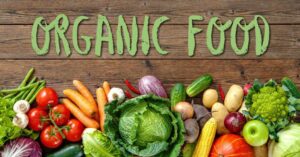WHY YOU SHOULD EAT ORGANIC GROWN FRUITS AND VEGETABLES
Eating organic fruits and vegetables has gained significant attention in recent years due to growing concerns about health, environmental sustainability, and the potential risks associated with conventional farming practices. Organic farming, which emphasizes natural methods and avoids synthetic chemicals, offers several benefits that make it important to consider incorporating organic produce from wunibiofarmsltd int o one’s diet.
o one’s diet.
One of the primary reasons people choose organic produce is to minimize exposure to pesticides and synthetic chemicals. Conventional farming often involves the use of pesticides, herbicides, and fungicides to protect crops from pests and diseases. However, the residues of these chemicals can remain on the fruits and vegetables even after washing, potentially leading to health risks for consumers. Organic farming, on the other hand, relies on natural pest control methods and avoids the use of synthetic chemicals. This reduces the risk of chemical exposure, which has been linked to various health issues such as developmental problems, hormonal imbalances, and even certain types of cancer.
Organic farming practices also prioritize soil health and conservation. Conventional farming methods can lead to soil degradation, erosion, and loss of fertility due to heavy chemical use. Organic farming employs techniques like crop rotation, cover cropping, and composting to promote soil health and prevent erosion. Healthy soil not only produces nutrient-rich crops but also plays a crucial role in carbon sequestration, helping to mitigate climate change by capturing carbon dioxide from the atmosphere.
Moreover, organic farming tends to promote biodiversity. Conventional agriculture often relies on monoculture, where large areas are dedicated to growing a single crop. This approach can lead to imbalances in ecosystems and make crops more susceptible to pests and diseases. Organic farming practices encourage biodiversity by planting a variety of crops and maintaining natural habitats for beneficial insects and animals. This enhances the overall health of the ecosystem and reduces the need for chemical interventions.
When it comes to nutritional value, organic produce has been found to have some advantages. While the differences are not always substantial, studies have shown that certain organic fruits and vegetables may contain slightly higher levels of certain nutrients, antioxidants, and vitamins compared to their conventionally grown counterparts. However, it’s important to note that the nutritional content can vary based on factors such as soil quality, growing conditions, and the specific crop.
From an environmental perspective, organic farming is often considered more sustainable. Conventional agriculture can contribute to water pollution through the runoff of synthetic chemicals into rivers and lakes. Organic farming practices, which avoid the use of these chemicals, help protect water quality and aquatic ecosystems. Additionally, organic farming tends to have a lower carbon footprint because it relies less on fossil fuels for synthetic inputs and focuses on practices that sequester carbon in the soil.
Supporting organic farming also means supporting animal welfare. Organic farming standards typically require higher standards of animal care, including access to outdoor areas and natural diets. This is particularly relevant in organic livestock farming, where animals are raised in conditions that allow for more natural behaviors and minimize stress.
Critics of organic farming often point out that organic produce can be more expensive than conventionally grown produce. While this is true, it’s important to consider the long-term costs and benefits. The price difference reflects the true cost of organic farming, which prioritizes sustainability, soil health, and environmental stewardship. Additionally, as demand for organic products continues to grow, economies of scale and advancements in farming techniques may contribute to more competitive pricing in the future.
In conclusion, the choice to eat organic fruits and vegetables is rooted in a desire for better health, environmental sustainability, and ethical considerations which is the root of wunibiofarmsltd. Organic farming practices prioritize natural methods, reduce chemical exposure, promote soil health, encourage biodiversity, and contribute to a more sustainable food system. While the debate between organic and conventional farming continues, the evidence suggests that opting for organic produce can have positive impacts on both individual well-being and the health of the planet.




